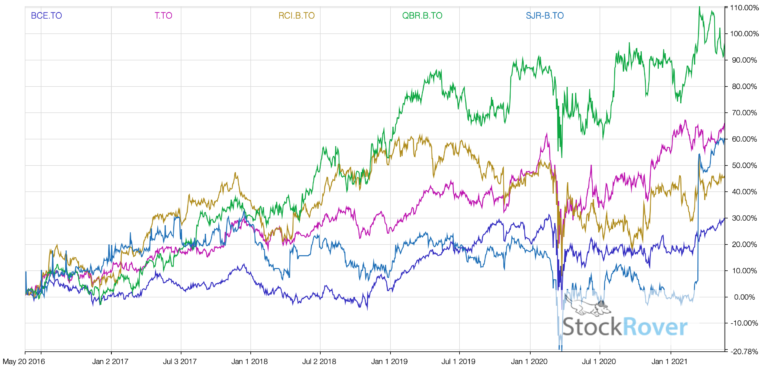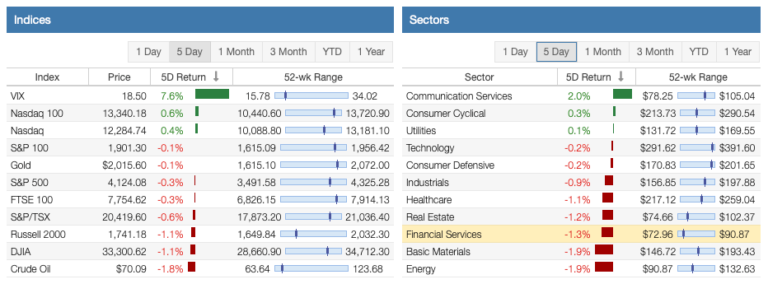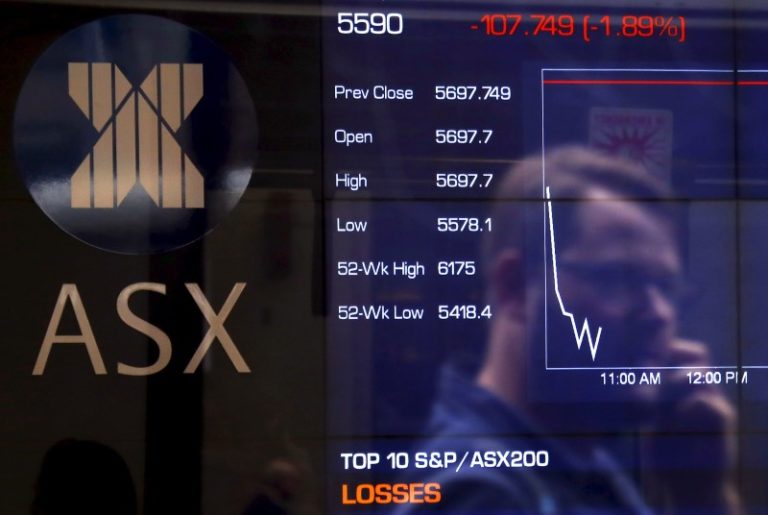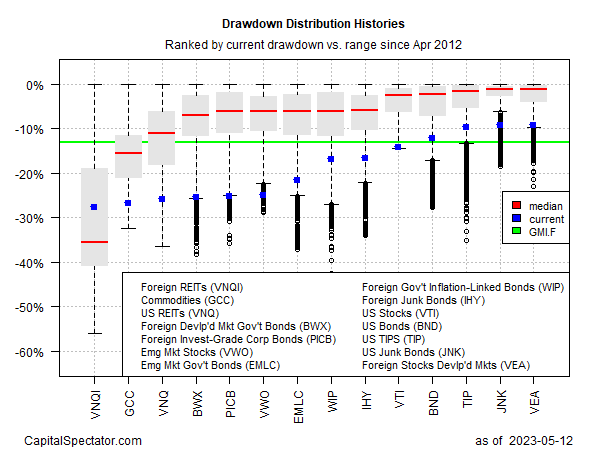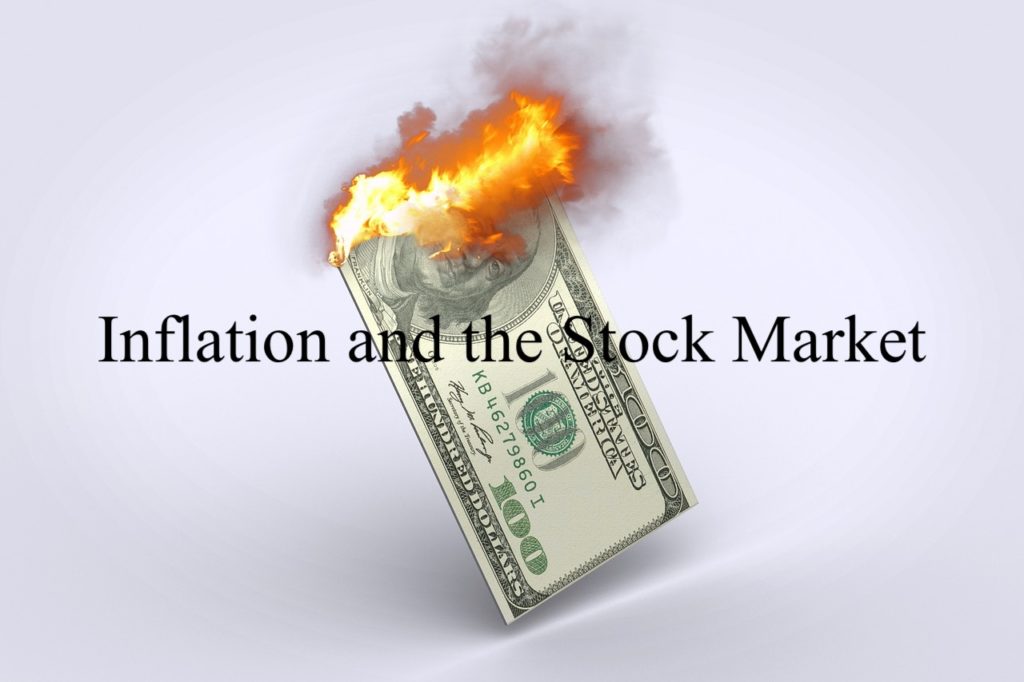
Inflation and the Stock Market
Inflation affects the stock market. Investors with many years of experience know this. Novice investors have more recently learned this. High inflation is a net negative for consumers, corporations, and economies. Some economies have struggled with increased rates of inflation for many years. On the other hand, the US has generally had long periods of low-to-moderate inflation with periods of high inflation. So how do inflation and the stock market interact? To understand this question and answer, we must first define inflation.

Affiliate
StockRover is one of the best stock, ETF, and mutual fund screeners and analysis tools. It has 8,500+ stocks, 4,000 ETFs, and 40,000 mutual funds. You can get access up to 650+ metrics and financial data. The Stock Rover platform includes watchlists, portfolio integration, portfolio rebalancing, e-mail and text alerts, future income forecasts, etc.
Inflation Basics
Many people talk about inflation with certainty. They know it is bad but have a hard time defining it. Thus, let’s first answer, what is inflation?
Inflation is the rise of the prices of goods and services. It diminishes the purchasing power of the US dollar or any other currency. For instance, when egg prices rise over time, the same $1 buys a lower amount. Hence, inflation erodes a consumer’s ability to purchase goods and services. When inflation is low, like 1% – 3%, incomes usually keep up with inflation, and people are generally not too concerned. However, when inflation is high or increases quickly, incomes may not keep up with rising prices, and consumers feel the pinch.
In the worst-case scenario, it is referred to as hyperinflation in countries with double-digit or higher inflation rates.
Another concern is inflation causes companies to lose purchasing power unless they can quickly increase the prices of the products and services they sell. However, price increases usually take several quarters to implement before consumers, and other businesses accept higher prices.
Central banks typically increase interest rates to control inflation, making borrowing money more expensive. Corporations react to higher interest rates by reducing hiring and capital investment. This action usually produces slower growth and greater unemployment across an economy.
Besides impacting an economy, inflation affects stock market returns.
Inflation Lowers Stock Market Returns
Besides affecting the profitability of companies, inflation broadly affects the stock market. Most research indicates higher inflation correlates with lower stock market returns. In the short-term, high expected inflation causes low stock market returns, which also holds for the longer term. This fact is because real returns are nominal returns minus the rate of inflation.
For instance, research from the US Federal Reserve has shown a strong negative correlation between expected and actual inflation and price-to-earnings ratio (P/E ratio) because of lower expected long-term earnings growth. More simply, higher inflation means lower P/E ratios implying returns must be lower or negative. Moreover, more recent research confirms that high inflation correlates with lower equity returns. Furthermore, times of unexpectedly high inflation, like wars, have lower stock market returns.
Additionally, inflation causes greater stock market volatility as investors’ risk premiums become priced in. Inflation typically reduces expected and actual earnings and growth, so investors will abruptly lower valuations.
However, low-to-moderate inflation ranging from 1% to 3% is generally a sweet spot for stocks. This range means the economy is not overheating. As a result, prices will rise, but economic growth will balance the loss of purchasing power.
Value Outperforms Growth Stocks
During times of robust growth and low inflation, investors flock to riskier assets, and in the stock market, this point means growth stocks. However, inflation negatively affects growth stocks because they often borrow money to fund growth.
When inflation is too high, central banks respond by raising interest rates. For example, the Federal Reserve increases the Federal Funds rate in the US. In turn, this action increase causes the prime rate to rise, making borrowing money more expensive—interest rates on credit cards, commercial loans, mortgages, etc., all increase. For growth companies, the cost of growing is costly because of the higher cost of borrowing money. The effect is that expected earnings growth is lower, and thus the stock price falls, repricing to a lower valuation. In extreme circumstances, growth stocks enter a bear market.
On the other hand, value stocks typically have high operating and free cash flows and, in many cases, pricing power. For example, think of Consumer Defensive sector stocks with dominant market positions. Consumers must still buy basic necessities and staples even if prices move higher. Consequently, these companies can raise prices to offset rising material, commodity, freight, and labor costs caused by high inflation.
Since stock valuations are the sum of discounted cash flows in future years, which are relatively stable for value stocks, they are usually impacted less than growth stocks. On the other hand, growth stocks struggle because high-interest rates are discounted over more prolonged periods by investors. Hence, on average, value stocks outperform growth stocks during periods of high inflation.
In addition, value stocks are frequently defensive and pay dividends that help cushion lower stock prices. For example, if a stock price comes down by 5%, a 2% dividend yield offsets that decline making the total return less negative.
Final Thoughts on Inflation and the Stock Market
Higher inflation is a negative for the stock market. This fact occurs because most investors expect a low-to-moderate level of inflation to drive overall economic growth. However, high inflation tends to break down that relationship as costs rise too fast, earnings are impacted in the short term, and earnings growth becomes expensive. One caveat is that value stocks, on average, perform better than growth stocks during times of high inflation.
Thanks for reading Inflation and the Stock Market!
Related Articles on Dividend Power
Here are my recommendations:
If you are unsure on how to invest in dividend stocks or are just getting started with dividend investing. Take a look at my Review of the Simply Investing Report. I also provide a Review of the Simply Investing Course. Note that I am an affiliate of Simply Investing.
If you are interested in an excellent resource for DIY dividend growth investors. I suggest reading my Review of The Sure Dividend Newsletter. Note that I am an affiliate of Sure Dividend.
If you want a leading investment research and portfolio management platform with all the fundamental metrics, screens, and analysis tools that you need. Read my Review of Stock Rover. Note that I am an affiliate of Stock Rover.
If you would like notifications as to when my new articles are published, please sign up for my free weekly e-mail. You will receive a free spreadsheet of the Dividend Kings! You will also join thousands of other readers each month!
*This post contains affiliate links meaning that I earn a commission for any purchases that you make at the Affiliates website through these links. This will not incur additional costs for you. Please read my disclosure for more information.
Published at Tue, 13 Sep 2022 04:00:00 -0700
